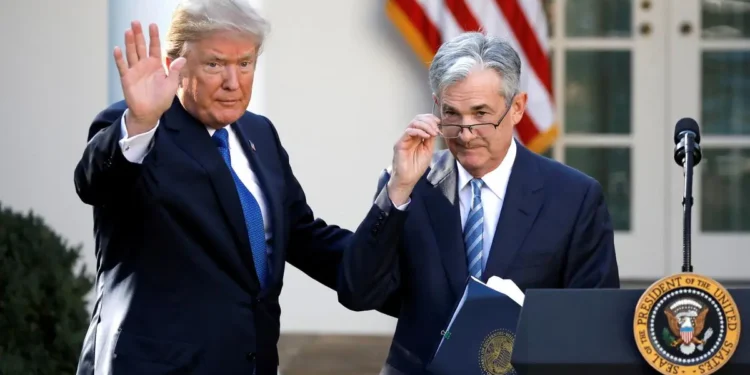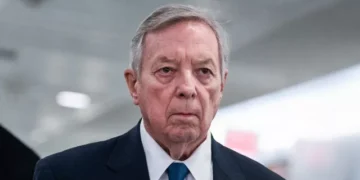In recent months, the United States has been embroiled in a trade war with several of its major trading partners, most notably China. As a result, there has been much debate and speculation about the potential impact of tariffs on the economy and how the Federal Reserve will respond. In the midst of this uncertainty, Federal Reserve Chairman Jerome Powell has stepped forward to defend the Fed’s independence and stress the importance of carefully monitoring the inflationary effects of tariffs before making any adjustments to monetary policy.
At a recent conference in Jackson Hole, Wyoming, Powell addressed the concerns surrounding the trade war and its potential impact on the economy. He emphasized the need for the Fed to remain independent and free from political influence, stating that “central bank independence is critical for the effective conduct of monetary policy.” This statement is particularly relevant in light of recent criticism from President Trump, who has openly expressed his dissatisfaction with the Fed’s interest rate hikes.
Powell went on to explain that the Fed’s primary mandate is to maintain price stability and promote maximum employment. In order to achieve these goals, the Fed must carefully consider all factors that could potentially impact the economy, including trade policies. However, he stressed that the Fed’s decisions should not be swayed by short-term political considerations, but rather based on sound economic analysis and data.
One of the key concerns surrounding the trade war is the potential for tariffs to drive up prices and lead to inflation. Powell acknowledged this concern, stating that “tariffs can push up prices and lead to higher inflation.” However, he also pointed out that the impact of tariffs on inflation is not immediate and can take time to fully materialize. This is why he emphasized the need for the Fed to closely monitor the situation and carefully assess the inflationary effects of tariffs before making any changes to monetary policy.
Powell’s remarks come at a time when there is growing speculation about the Fed’s next move. Many economists and investors are wondering whether the Fed will continue with its plan to gradually raise interest rates or if it will pause in light of the trade war and its potential impact on the economy. Powell’s comments suggest that the Fed will take a cautious approach and carefully consider all factors before making any changes to monetary policy.
The Fed’s independence is crucial in times like these, when there is significant uncertainty and volatility in the markets. It allows the central bank to make decisions based on what is best for the economy, rather than being influenced by political pressures. This independence has been a cornerstone of the Fed’s credibility and has played a key role in maintaining the stability of the US economy.
Powell’s defense of the Fed’s independence is a reassuring message for investors and the public alike. It shows that the Fed is committed to fulfilling its mandate and will not be swayed by external factors. It also highlights the importance of transparency and clear communication from the Fed, as Powell’s remarks have helped to ease some of the uncertainty surrounding the trade war and its potential impact on the economy.
In conclusion, Powell’s remarks at the Jackson Hole conference serve as a reminder of the Fed’s crucial role in maintaining the stability of the US economy. By defending the Fed’s independence and stressing the need for careful monitoring of inflationary impacts of tariffs, Powell has reassured the public that the central bank is well-equipped to handle the challenges posed by the ongoing trade war. As the Fed continues to navigate through these uncertain times, it is important for all stakeholders to trust in the central bank’s ability to make sound and independent decisions for the benefit of the economy as a whole.










